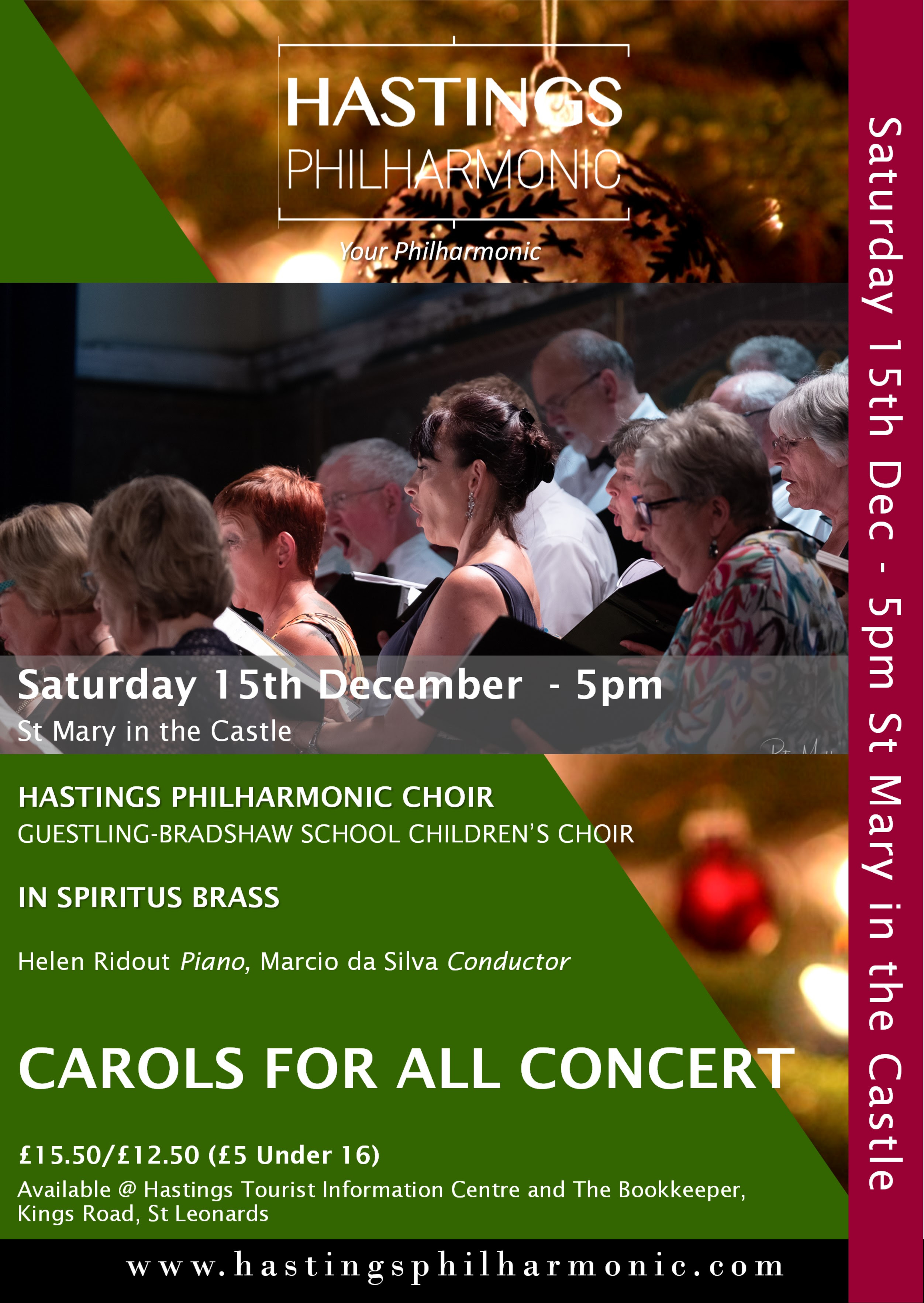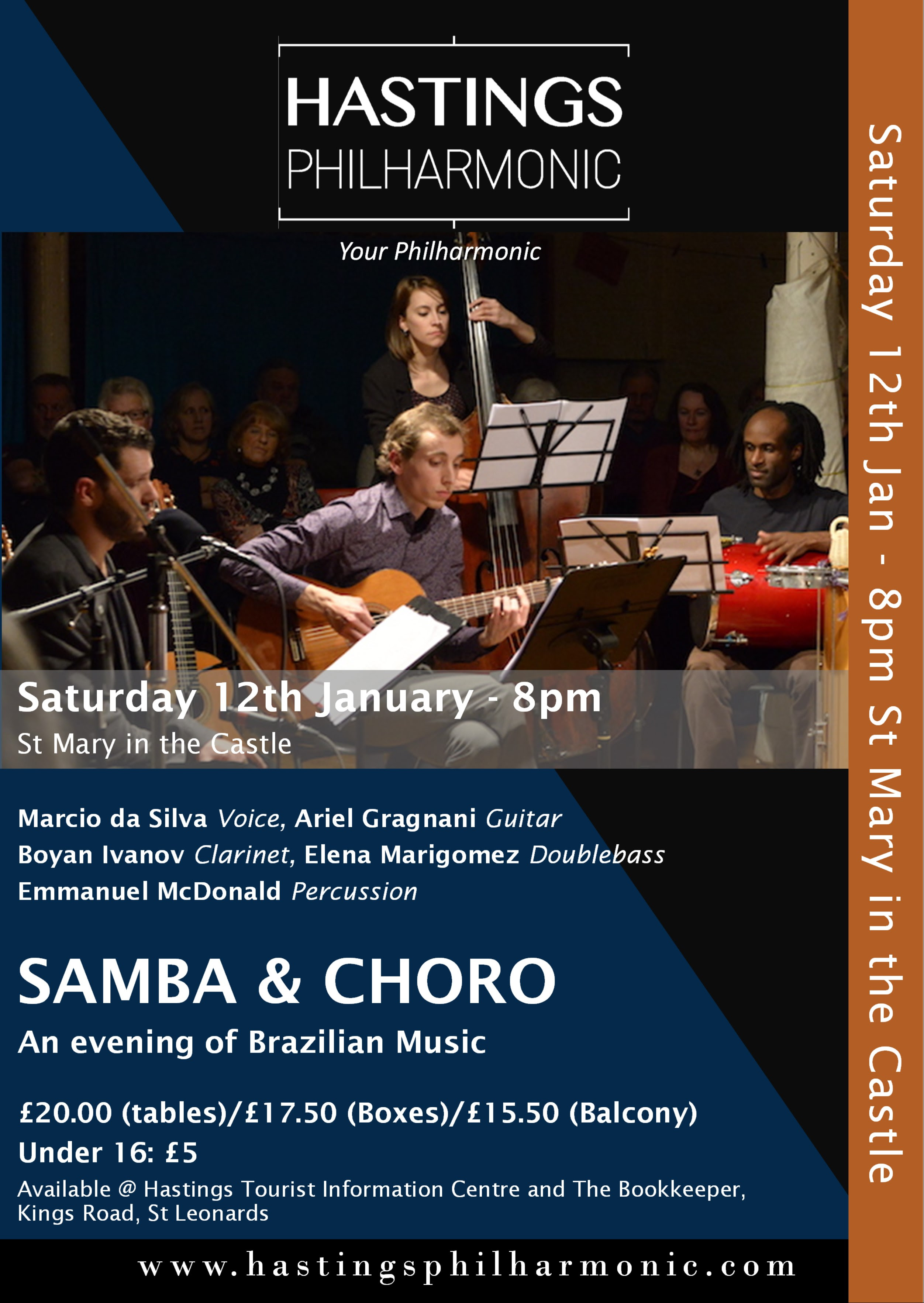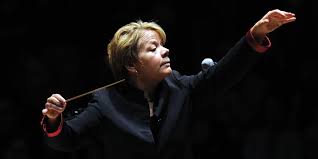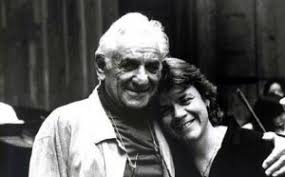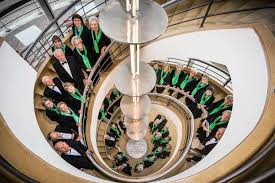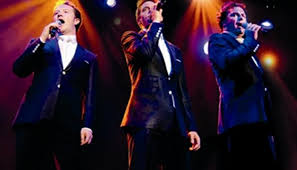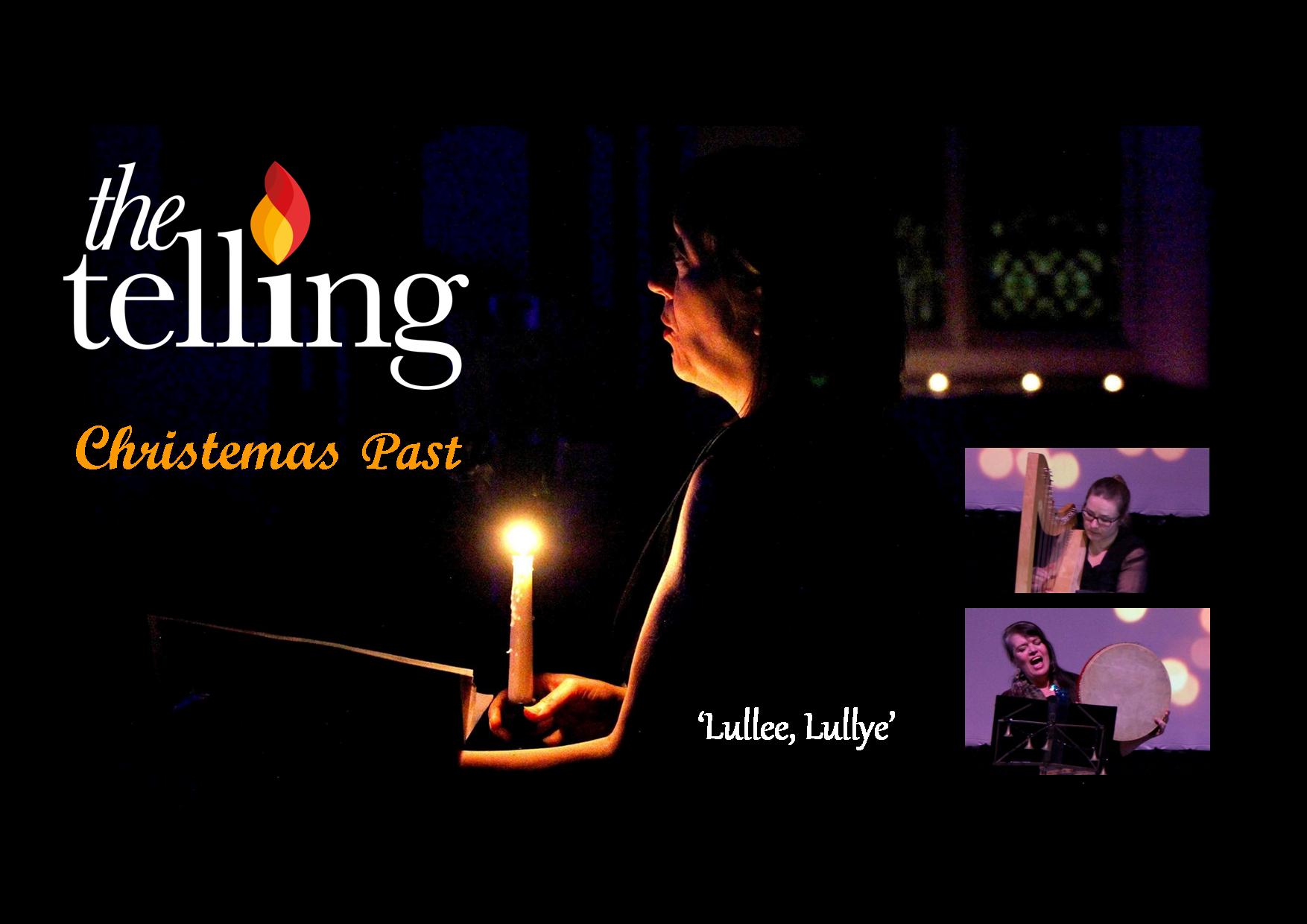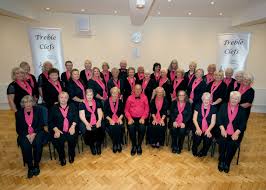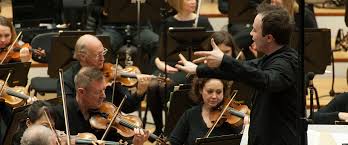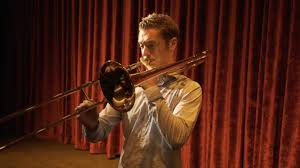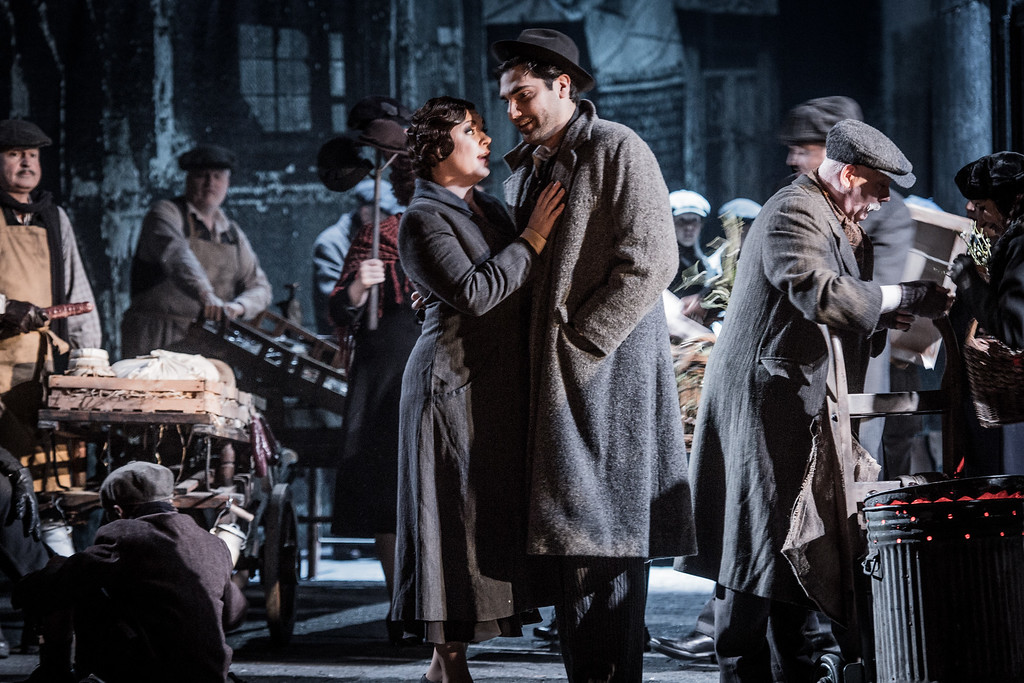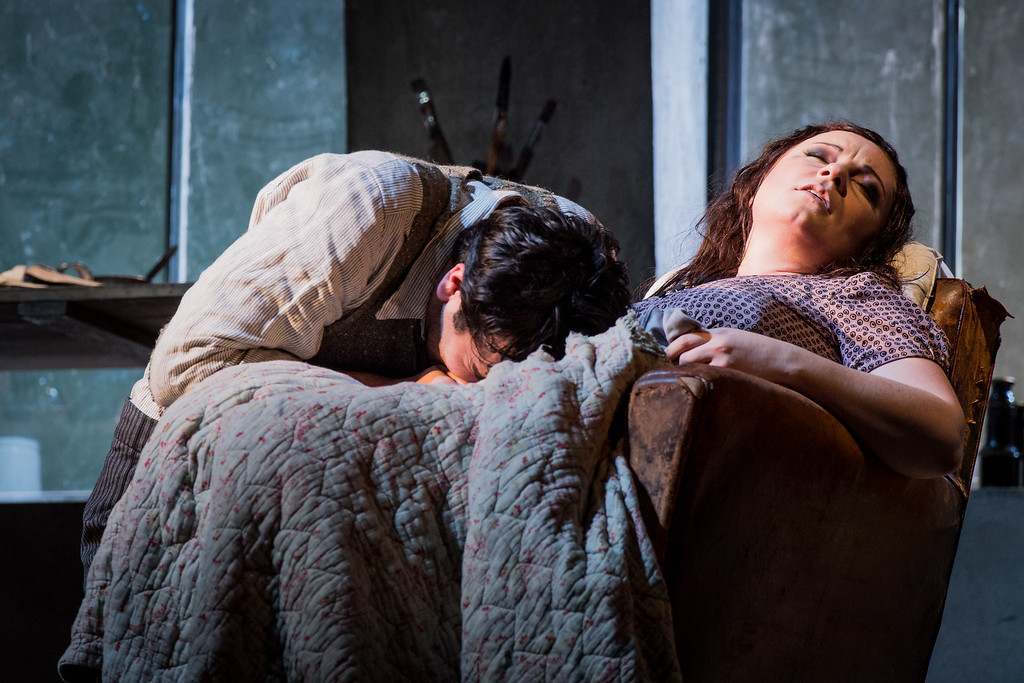Author Archives: Admin
LSO: Candide
Barbican Hall, Sunday 9 December 2018
In this anniversary year for Leonard Bernstein I was really waiting for Candide. Often dismissed in its early years as almost impossibly rambling it is now recognised as one of his most important works and last night was given the most consummate staging I can recall.
At the helm was Marin Alsop, and we were tactfully reminded, through the overhead screens at the end, that she had worked with Bernstein. If she does not take the work quite as rapidly as he did she nevertheless brings a zip and enthusiasm which carries the narrative forward without any loss of musical finesse.
Tiny moments – the pique of the piccolo in the overture, the romantic string melodies and bite of the chorus – all added up to an evening that did not drop for a second. Added to this, a cast which could surely not be bettered. Jane Archibald’s Cunegonde had the cynicism of the rich coupled with a magnificent coloratura enabling her to throw off Glitter and be gay as if it were a walk in the park. Leonardo Capalbo’s Candide moved from a lighter, almost naïve, tone at the start to a weighty helden-tenor in the final scenes.
Thomas Allen’s Pangloss combined humour with a gently firm characterisation but possibly the surprise of the evening was Anne Sofie von Otter’s remarkably mobile Old Lady – both physically and vocally. Of the impressive line-up of singers for the numerous smaller parts tenor Thomas Atkins was notable for his virile and very pleasing tone, as well as his warm characterisation.
The LSO played with wonderful energy for Marin Alsop, and the LSO chorus provided us with a weight of sound unheard in the theatre. I can’t recall Bernstein’s chorus items as well sung before, and their involvement in the evening – storm movements, Hawaiian shirts and numerous sound effects – added hugely to the overall impact. Garnett Bruce’s semi-staging was just that, intelligent movement for the soloists, a minimal setting which stood in for ship, coach, stately home, and a close relationship between orchestra, chorus and singers.
I would hope to encounter Candide again with forces as good as this, but I don’t expect to hear better.
Bexhill Choral Society
St Augustine’s Church, Bexhill, 8 December 2018
Bexhill Choral’s annual Carols and Music for Christmas may follow a well-worn path but it is the insertion of unexpected items which add to the pleasure of the event each year. On this occasion it was the opening items – an exhilarating Torches! Torches! followed by the mellow glow of Berlioz’ Shepherd’s Farewell which set the tone. Throughout, the crisp rhythms of the choir and the clear diction added to the sense of immediacy.
If Gounod’s Nazareth is almost too sentimental for a 21st century audience, Bob Chilcott’s arrangements are always apt and Kenneth Roberts’ own adaptations – in particular the Gloucestershire Wassail and the concluding popular numbers – move the whole evening into a lighter and more personal vein.
The choir were joined on this occasion by Peter Grevatt who sang with them for the Gounod and two carol arrangements, but was in his element with Bach’s Grosser Herr from the Christmas Oratorio. Here he was supported by solo trumpeter, Andy Gill, and organist Nigel Howard. Performing from the balcony, in the vibrant acoustic, it was spine-tinglingly exciting.
We were as usual invited to join in the choral carols, which included the Yorkshire version of While Shepherds to the tune of Ilkley Moor, and a rousing finale with O come all ye faithful.
Accompaniment throughout was provided by Nigel Howard on piano and organ – commuting between the two as needed – and the Cinque Ports Brass who flowered beautifully in the final movement of Schutz’ Christmas Story. As is now traditional, Kenneth Roberts played clarinet and saxophone for the final songs, and had joined the brass from the piano for the jazz classic Christmas night in Harlem.
All involved were on fine form throughout and we can look forward to the spring concert which will bring us works by John Rutter and Kenneth Roberts on 11 May 2019.
Tenors UnLimited
Opus Theatre, 7 December 2018
Opus Theatre was packed for the return of Tenors UnLimited even if they were almost upstaged by the wonderful enthusiasm of Guestling-Bradshaw school choir. The evening was however focussed on a higher cause and before a note was heard we had a brief but powerful introduction to the work of World Water Works and their campaign to provide Water Survival Boxes for immediate emergency use.
After two Italian songs we heard one of the Tenors recent hits – Viva la vita – the energy from which launched easily into the Brindisi from La Traviata, and so, sequentially, to Unchained Melody and Volare. If some of this, particularly given the over-amplification within the fine acoustic of Opus Theatre, was rather too much in-your-face, the gentler opening of Who is he? proved to be much more effective. The young singers then joined the stage for This Little Light of Mine and a joint rendition of O Holy Night.
The second half allowed the tenors to demonstrate the individuality of their talents, most noticeably in the three pieces from Les Miserables. Paul opened with Javert’s Out in the darkness – showing that he only just sneaks in as a tenor given that his voice is essentially high baritone – Jem impressed with Empty tables, and Scott rounded the section off with Bring him home. All finely done without any unnecessary emotionalism.
The choir joined them again and, in singing the opening of Once in Royal David’s city both unaccompanied and unamplified, Poppy showed once again just how fine the acoustic is here, if a young voice can carry so easily and with such finesse. After a couple of carols, the choir came to their piece de resistance – The Twelve Days of Christmas – complete with movement and bling!
A brief run through Jingle Bells and we were in to the final numbers with a moving interpretation of You Raise Me Up. Everyone went away happy – and what more can you ask of a Christmas show.
Full details of the Water Survival Boxes can be found at www.worldwaterworks.org
‘Christemas Past’ with The Telling in candlelight
St Paul’s Worthing on Wednesday December 19 (8pm)
- “beautifully borne” Sean Rafferty, BBC Radio 3
- “sung with perfection that is heart-stopping” Worthing Herald
- “We flew back over 700 years to the strumming of a harp, a candle’s flicker and exquisite, plaintive song” The Latest
Medieval English and later European carols in a special authentic ambience and period atmosphere in Worthing’s most responsive performing space.
A stimulating eve-of-Christmas vocal event.
Tomorrow (Dec 8), The Telling are live on BBC Radio 4’s ‘Saturday Live’, from 9am. They’ll perform a traditional Catalan carol from Spain (‘El Noi de la Mare’) and an English medieval one (‘Lullay, My Child’). Both will be in their Worthing Concert.
See this news here: https://mailchi.mp/
If you miss it, catch up here: https://www.bbc.co.uk/
Specialist early music international recording artistes – soprano and mezzo Clare Norburn and Ariane Prussner (Germany) with medieval harpist Kaisa Pulkkinen (Finland) and some hand percussion – plus the spoken word of TV, radio drama and audio books voice, Patience Tomlinson, in some classic seasonal readings.
Dialogue with the artistes in a short Q&A, and a couple of intriguing and inviting gift stalls that could solve your gift-buying problems – even be a treat for yourself! And a preview of two visits The Telling will make to this venue in March and October.
Special heating measures assured at a venue experiencing boiler problems at the moment!
Tickets from St Paul’s cafe counter or online via here: https://stpaulsworthing.co.uk/
Hear The Telling singing ‘Ther Is No Rose’: https://www.facebook.com/
Treble Clefs
St John’s, Hollington, 6 December 2018
Treble Clefs returned to St John’s, Hollington, for a well-supported Christmas concert which encouraged audience participation not just with the carols but with the familiar songs surrounding them.
However, the most impressive parts of the evening came from the less familiar and unexpected items. Whisper! Whisper! was certainly unknown to me as a Christmas Carol but was wonderfully effective and will surely become a standard very soon. This was preceded by a gentle lullaby, Before the marvel of this night, both American settings and both worth getting to know better.
The other surprise was O Holy Night sung by young singers Maisie and Ben. It was one of those spine-tingling moments which we wished could have gone on far longer. The produced splendidly focussed voices, well balanced and accurate, with an emotional intensity which never became sentimental.
The choir had opened with Come to the Celebration before we all sang Joy to the World, which segued into a medley of popular Christmas songs.
Accompanist Stephen Page gave the choir a break when he gave two organ solos – the beautifully reflective This is the truth and a rousing jazz arrangement of The Virgin Mary had a baby boy.
It was good to hear the verse introduction to Winter Wonderland and the cheery Christmas is Here – with its surprising overtones of The Muppet Christmas Carol! – brought the evening to a fine climax.
Treble Clefs under their ebullient conductor Keith Richardson will certainly make a welcome return next year.
The Class Choir
Unitarian Church, Wednesday 5 December 2019
The Class Choir, under their enthusiastic director John Cornforth, brought their Christmas Celebration to the intimate surroundings of the Unitarian Church for an evening enhanced with mulled wine, sausage rolls and mince pies.
Warming us up with a rapid rendition of The Grand Old Duke of York they launched into I saw three ships, Wild Mountain Time and Caledonia. While all their songs are sung in harmony, some are more complex than others, and it was a tribute to their enthusiasm and expertise that they brought off The Carol of the Bells with such finesse and bright precision. This led into the rather sentimental Blessing – made popular by the Celtic Women – and an impressive Jazz Gloria.
We have heard Flying Free from them before but it was none the less welcome and the evening concluded – musically at least – with us all joining in We wish you a merry Christmas.
Brighton Philharmonic Orchestra
Brighton Dome, 2 December 2018
On a personal level this was a very much a “been-there-done-that” sort of concert. Mozart’s Haffner symphony was the very first whole symphony I played in public (Lewisham Philharmonic – never mind how long ago) and I hold it in great affection. And I did Beethoven 7 only last week with the South London Community Orchestra I now play second violin in. The intimate knowledge – including with the Beethoven being able to visualise the music in my head and knowing where the page turns come – certainly makes for a different listening experience.
In Ben Gernon’s interpretation of the Haffner – a succinct symphony – I admired his control of dynamics and lightness of touch in the opening movement, followed by an elegant andante, a wittily executed minuet and trio and a rousing presto taken at an impressive pace.
Then came the centrepiece: violinist Tamsin Wayley-Cohen and the Mozart K291, the 5th concerto known as the Turkish. It’s one of those works which makes you smile at every fluent bar of Mozartian playfulness including the pianissimo solo entry in the first movement which Wayley-Cohen carefully underplayed on her mellow toned Stradivarius instrument. She had fun with the “Turkish” section leaning gleefully on exotic harmonies and she played the decorations in the finale with insouciance.
She’s an interesting musician to watch because she played this concerto as if it were chamber music, leaning in to the conductor and leader with lots of eye contact, her body angled away from the audience. She also often joins in with the orchestral sections – commendably un-diva like in her dramatic flowing white dress and silver heeled shoes. Then she stunned the audience with her flamboyant encore. I have absolutely no idea how you do double stopping and left hand pizzicato at the same time and her account of the second section of Kreisler’s Recitativo and Scherzo Caprice was dazzling.
And so to the delights of Beethoven’s glorious Seventh Symphony played here with all the repeats respected so it was a meaty rendering. Gernon, who works without a baton, kicked off at a very slow speed so that every note in the gentle rising scales between the big chords was clear. Then he shot off like a romantic era rocket when he reached the vivace all the way to that wonderful moment when the horn does its white water rafting blasts at the top of the texture just before the end of the movement – just one example of lovely work from principal horn at several points in this symphony.
Gernon’s allegretto was crisper and less self indulgent that some conductors and it felt refreshing as did the supple, agile dance he created in the presto while still allowing plenty of weight in the middle section with sustained notes and horn melodies. His fourth movement – very fast indeed – was powerful too because despite the speed every detail was attended too and there was some excellent trumpet playing – bags of the requisite brio.
I thought that a programme like this would pack the Dome to the gunwhales. Sadly it didn’t. Of course there were a lot of people there but there were also far too many empty seats. Come on, folks. Brighton Philharmonic needs big audiences to survive. And you missed a treat this time.
Susan Elkin
Maidstone Symphony Orchestra
Mote Hall, Maidstone, 1 December 2018
A slightly less populist concert than MSO often presents, we began with Kodaly’s Dances of Galanta. Brian Wright observed in his introduction that the concert’s three works all have folk themes and origins. That was very clear in the opener which the orchestra played, after a rather exposed shaky start, with rich vibrancy. The fast and furious string work and the flute solos were especially noteworthy.
Gordon Jacobs’s 1955 trombone concerto may not be a great work (somewhere between Eric Coates and Vaughan-Williams on an off day with an awful lot of predictable arpeggios) but it’s a rare treat to see the trombone take centre stage. It was also delightful to see the grown up Peter Moore back in Maidstone to play it. In 2008 he was the youngest ever winner of the BBC Young Musician of the Year and played with MSO soon after. Still looking barely old enough to have left school, Moore found lyrical clarity in every note during a thoughtful performance which demanded to be listened to very attentively. And the Sarabande by Bach which he played as an encore was stunningly beautiful.
And so to a Mahler marathon. His long first symphony is very demanding and it was played here with unflagging energy. Personally I’ve always found the opening indecisive, disparate and wishy-washy with its cuckoo-ing woodwind and offstage brass but Wright held it together competently. There was some elegant playing in the second movement including nice string glissandi in the trio.
The third movement is, of course, one of Mahler’s best. Jasmine Otaki played the double bass solo – the memorable minor key Frere Jacques theme which dominates the movement – with real mystery. We heard MSO at its best here, as other instruments and sections gradually picked up the theme and intensified the texture. The contrasting Klezmer-like section led by the brass with percussive col legno from the violins was excellent too.
The final movement is momentously manic in nature and calls for much intensity. That is not to say it should let rip and in places this performance sounded less controlled than it needs to be although I really liked the grandiloquence achieved by the brass section.
It’s a symphony which batters its listeners and demands enormous stamina from its players. No wonder Brian Wright looked exhausted at the end.
Susan Elkin
ENO: La Boheme
London Coliseum, Monday 26 November 2018
Jonathan Miller’s production of La Boheme has always impressed for the vitality of its staging and the simplicity of its story telling. When this is combined with young singers who are totally convincing in their roles it can’t fail to please.
This may be its fourth revival – to say nothing of an ill-fated alternative which was thankfully short-lived – but it comes up as fresh and emotionally truthful as ever. Much of this certainly is down to the casting.
Jonathan Tetelman’s Rodolfo sang heroically throughout, the top firm and rounded, and the voice seemed to blossom as the evening progressed. Added to this, his acting was emotionally convincing at all times, the subtlety of his gestures particularly telling. Let us hope we see him again soon. Natalya Romaniw may be better known to us but was none the less welcome. Her near immobility in the final act was devastating as she literally faded away before our eyes. Earlier she had been more in control of the situation that is often the case, leading Rodolfo out in Act Three where he had almost lost the plot. It was very touching.
Nadine Benjamin’s Musetta uses all her sensuality to promote herself and yet proves to be equally sensitive in the final act. She is strongly partnered by Nicholas Lester’s intelligent Marcello.
Alexander Joel was making his debut in the pit and took the whole evening at a fast pace though it never, ever, seemed rushed. The orchestra responded with enthusiasm and the chorus, as ever, was magnificent in the finely staged second act. Here everything buzzes on stage without ever upstaging the soloists – the sign of an exceptional understanding of stage-craft.
I am sure this is not the last time we will see this splendid production.

